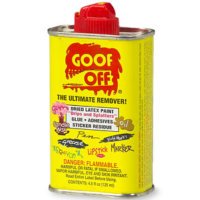Hi all -
I recently got an airbrush setup, and need a little help with basics.
For convenience, I'm learning with acrylics:
a flat black sprayed onto an old, stripped metal Mantua shell scratches off with the lightest scrape - how should I prepare the metal so that I get a bond?
I haven't tried yet due to this first failure, but want to know if acrylics will bond to plastic, as is most of my stuff, or does this need a primer/prep also?
Lastly, does brass require any special prepping/primers?
Any info greatly appreciated & TIA!:thumb:
regards,
I recently got an airbrush setup, and need a little help with basics.
For convenience, I'm learning with acrylics:
a flat black sprayed onto an old, stripped metal Mantua shell scratches off with the lightest scrape - how should I prepare the metal so that I get a bond?
I haven't tried yet due to this first failure, but want to know if acrylics will bond to plastic, as is most of my stuff, or does this need a primer/prep also?
Lastly, does brass require any special prepping/primers?
Any info greatly appreciated & TIA!:thumb:
regards,


